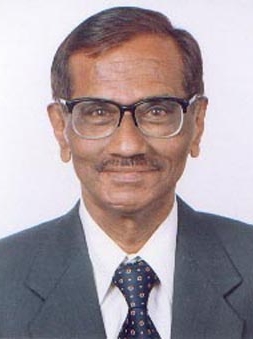Ruling
The Constitution Bench of the Supreme Court had five judges and was headed by Chief Justice A.N. Ray. The Bench interpreted the word `propagate' used in Article 25(1) of the Constitution as `defined' in the Shorter Oxford Dictionary - "to spread from person to person, or from place to place, to disseminate, diffuse (a statement, belief, practice etc.)" and in the Century Dictionary (which is an Encyclopaedic Lexicon of the English Language) Vol. VI - "to transmit or spread from person to person or from place to place; carry forward or onward; diffuse; extend; as `propagate' a report; `propagate' the Christian religion." The Bench observed: "We have no doubt that it is in this sense that the word `propagate' has been used in Article 25(1), for what the Article grants is not the right to convert another person to one's own religion, but to transmit or spread one's religion by an exposition of its tenets."
A distinction was made between the right to propagate and the right to convert. The former was allowed while the latter was seen as not a part of the fundamental rights.
Referring to Article 25(1), Chief Justice Ray, writing for the Court, held: What the Article grants is not the right to convert another person to one's own religion, but to transmit or spread one's religion by an exposition of its tenets. It has to be remembered that Article 25(1) guarantees Afreedom of conscious to every citizen, and not merely to the followers of one particular religion and that, in turn, postulates that there is no fundamental right to convert another person to one's own religion because if a person purposely undertakes the conversion of another person to his religion, as distinguished from his effort to transmit or spread the tenets of his religion, that would impinge on the "freedom of conscience" guaranteed to all the citizens of the country alike.
This distinction between conversion and propagation simply for "the edification of others" was previously stated in Ratilal v. State of Bombay, [FN61] which was appealed to as a precedent.
In Canadian and New Zealand law, fundamental justice is the fairness underlying the administration of justice and its operation. The principles of fundamental justice are specific legal principles that command "significant societal consensus" as "fundamental to the way in which the legal system ought fairly to operate", per R v Malmo-Levine. These principles may stipulate basic procedural rights afforded to anyone facing an adjudicative process or procedure that affects fundamental rights and freedoms, and certain substantive standards related to the rule of law that regulate the actions of the state.

Freedom of religion in Pakistan is formally guaranteed by the Constitution of Pakistan for individuals of various religions and religious sects.
Freedom of religion in India is a fundamental right guaranteed by Article 25–28 of the Constitution of India. Modern India came into existence in 1947 and the Indian constitution's preamble was amended in 1976, to explicitly declare India a secular state. Supreme Court of India ruled that India was already a secular state from the time it adopted its constitution, what actually was done through this amendment is to state explicitly what was earlier contained implicitly under article 25 to 28. Every citizen of India has a right to practice and promote their religion peacefully. However, there have been numerous instances of religious intolerance that resulted in riots and mob violences; notably, the 1984 Sikh Massacre in and around Delhi, 1990 Exile of Kashmiri Pandits (Brahmins) from Kashmir (Cashmere), the 1992–93 Bombay Riots in Mumbai (Bombay), the 2008 Anti-Christian riots in Odisha (Orissa) and other anti-Christian violence in India. Some perpetrators of the 1984 Sikh Massacre have not been brought to justice despite widespread condemnation.
Section 2 of the Canadian Charter of Rights and Freedoms ("Charter") is the section of the Constitution of Canada that lists what the Charter calls "fundamental freedoms" theoretically applying to everyone in Canada, regardless of whether they are a Canadian citizen, or an individual or corporation. These freedoms can be held against actions of all levels of government and are enforceable by the courts. The fundamental freedoms are freedom of expression, freedom of religion, freedom of thought, freedom of belief, freedom of peaceful assembly and freedom of association.
The Fundamental Rights in India enshrined in part III of the Constitution of India guarantee civil liberties such that all Indians can lead their lives in peace and harmony as citizens of India. These rights are known as "fundamental" as they are the most essential for all-round development i.e., material, intellectual, moral and spiritual and protected by fundamental law of the land i.e. constitution. If the rights provided by Constitution especially the Fundamental rights are violated the Supreme Court and the High Courts can issue writs under Articles 32 and 226 of the Constitution, respectively, directing the State Machinery for enforcement of the fundamental rights.
Jainism is considered to be a legally distinct religion in India. A section of scholars earlier considered it as a Hindu sect or a Buddhist heresy, but it is one of the three ancient Indian religions. On 27 January 2014, the Government of India explicitly awarded the status of a "minority religion" to the Jain community in India, as per Section 2(c) of the National Commission for Minorities (NCM) Act (NCM), 1992.

Dhananjaya Yeshwant Chandrachud is an Indian jurist, who served as the 50th Chief Justice of India from 9 November 2022 to 10 November 2024. He was appointed a judge of the Supreme Court of India in May 2016. He has also previously served as the chief justice of the Allahabad High Court from 2013 to 2016 and as a judge of the Bombay High Court from 2000 to 2013. He also served as the ex-officio Patron-in-Chief of the National Legal Services Authority and the de facto Chancellor of the National Law School of India University.

Jagdish Sharan Verma was an Indian jurist who served as the 27th Chief Justice of India from 25 March 1997 to 18 January 1998. He was the chairman of the National Human Rights Commission from 1999 to 2003, and chairman of the Justice Verma Committee Report on Amendments to Criminal Law after the 2012 Delhi gang rape case. He remains one of India's most highly regarded Chief Justices and eminent jurists in its history.
The hate speech laws in India aim to prevent discord among its many ethnic and religious communities. The laws allow a citizen to seek the punishment of anyone who shows the citizen disrespect "on grounds of religion, race, place of birth, residence, language, caste or any other ground whatsoever". Section 153A of the Indian Penal Code prohibits citizens from creating disharmony or feelings of enmity, hatred or ill-will between different groups of people.
The Twenty-fifth Amendment of the Constitution of India, officially known as The Constitution Act, 1971, curtailed the fundamental right to property, and permitted the acquisition of private property by the government for public use, on the payment of compensation which would be determined by the Parliament and not the courts. The amendment also exempted any law giving effect to the article 39(b) and (c) of Directive Principles of State Policy from judicial review, even if it violated the Fundamental Rights.

Article 15 of the Constitution of the Republic of Singapore guarantees freedom of religion in Singapore. Specifically, Article 15(1) states: "Every person has the right to profess and practise his religion and to propagate it."

Bal Patil was a Jain scholar, journalist, social activist and Jain minority status advocate from Mumbai, Maharashtra. He was appointed as a member of State Minority Commission by the Govt. of Maharashtra from 2001 to 2004. He was the Secretary-General of All India Jain Minority Forum, New Delhi—a position he held until his death—and was an ardent advocate of minority status for Jainism. The Jain minority cause gained prominence when he petitioned the Supreme Court of India for the recognition of Jain religious minority status on par with other Indian minorities as per the two recommendations by the National Minorities Commission. He was also the first non-medical President of the National Society for the Prevention of Heart Disease & Rehabilitation, Mumbai. He has also authored many books on Jainism and presented several papers at various seminars and conferences.

Jagdish Singh Khehar is an Indian jurist, who served as the 44th Chief Justice of India from 4 January 2017 to 27 August 2017. He was the first Sikh Chief Justice of India. He has been a judge in Supreme Court of India from 13 September 2011 to 27 August 2017 upon superannuation. He served for a brief period but gave many landmark judgements such as the Triple Talaq and the Right to Privacy verdict. He was succeeded by Justice Dipak Misra.

Dipak Misra is an Indian jurist who served as the 45th Chief Justice of India from 28 August 2017 till 2 October 2018. He is also former Chief Justice of the Patna High Court and Delhi High Court. He is the nephew of Justice Ranganath Misra, who was the 21st Chief Justice from 1990 to 1991.

Prafulla Chandra Pant is an Indian judge and author who served as a judge of the Supreme Court of India from 2014 to 2017. He later served as a member of the National Human Rights Commission of India from 2019 to 2021, and briefly acted as its chairperson. Prior to his appointment as a judge of the Supreme Court of India, he had previously served as chief justice of the Meghalaya High Court at Shillong and as a judge of the Uttarakhand High Court at Nainital.

Justice K.S. Puttaswamy (Retd.) &Anr. vs. Union of India &Ors. (2017), commonly known as the Right to Privacy verdict, was a landmark decision of the Supreme Court of India, which held that the right to privacy is protected as a fundamental right under Articles 14, 19 and 21 of the Constitution of India. The original petitioner Justice K.S. Puttaswamy was former judge of the Karnataka High Court

The Uttar Pradesh Prohibition of Unlawful Religious Conversion Ordinance, 2020, referred to as the Love Jihad law by most of the media, is an anti-conversion law enacted by the Government of Uttar Pradesh, India. The Uttar Pradesh state cabinet cleared the ordinance on 24 November 2020 following which it was approved and signed by state Governor Anandiben Patel on 28 November 2020.
Anti-conversion laws, or anti-conversion legislations, are a set of judicial rules that restrict or prohibit conversion of faith (proselytism) from one religion to another. It is a federal law in countries such as Algeria, Bhutan, Myanmar, and Nepal. They are meant to prevent forced conversion of individuals to different religions, and offences are punishable by imprisonment and fine. Sri Lanka has prepared its legislation, but has not yet enacted it. Pakistan had introduced the Prohibition of Forced Conversion Bill 2021 that was rejected by its Ministry of Religious Affairs in 2021.

Ujjawal &Anr. versus State of Haryana&Ors.(2021), a case where Punjab and Haryana High Court, refused to provide police protection to a couple facing threat to their lives and personal liberty, citing potential disruption to "social fabric of the society."
The Fundamental rights in Pakistan are indeed enshrined in the Constitution of Pakistan 1973. These rights are termed "fundamental" because they are considered vital for comprehensive development, covering material, intellectual, moral, and spiritual aspects, and are protected by the fundamental law of the land, i.e., the constitution. In the event of a violation of these rights, particularly the Fundamental Rights, the Supreme Court and the High Courts have the authority to issue writs under relevant articles to enforce and safeguard these fundamental rights.











